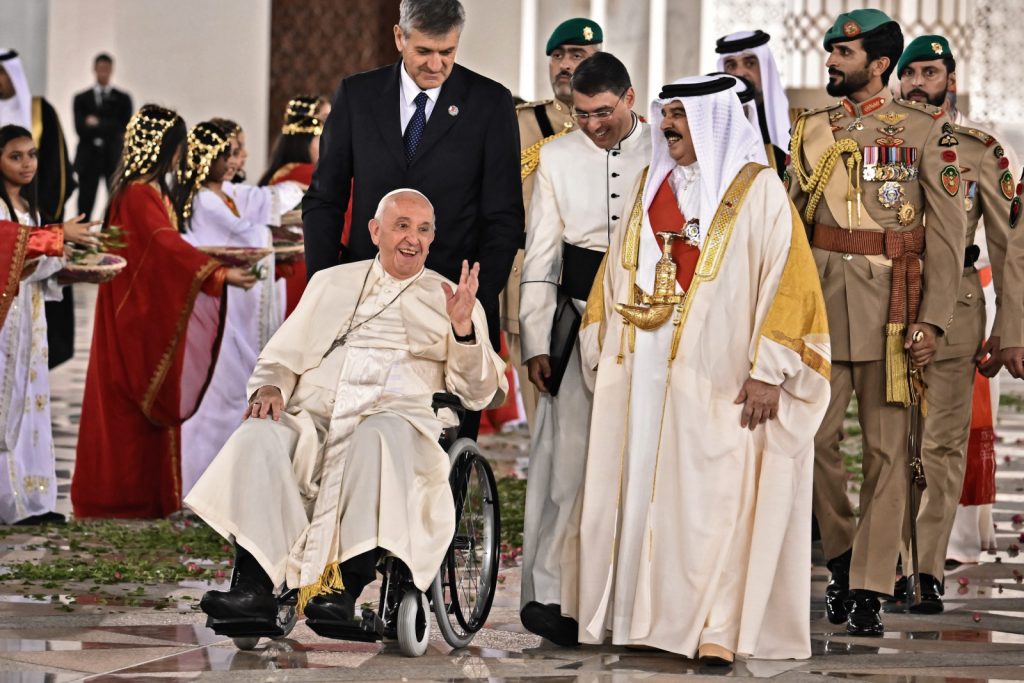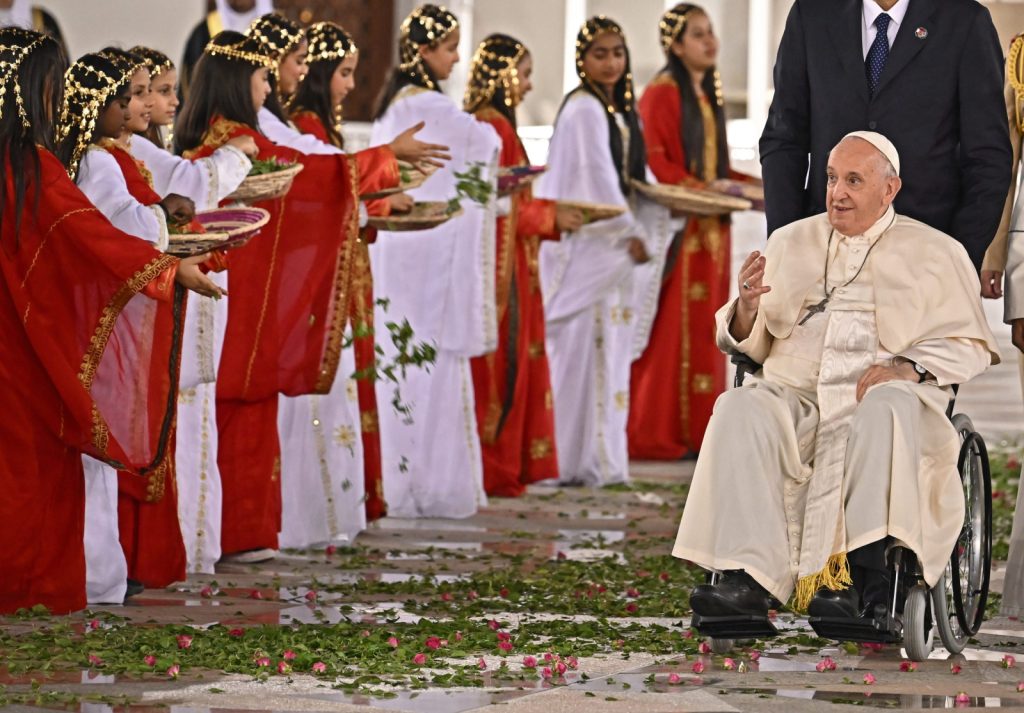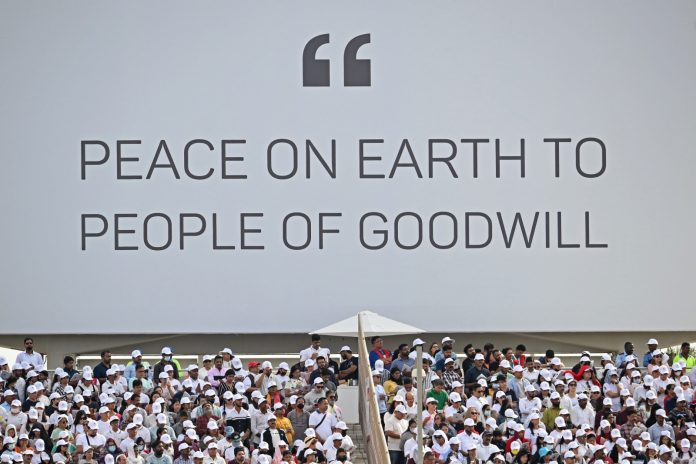Pope Francis warned the world is on the edge of a “delicate precipice” and buffeted by “winds of war” as he held inter-faith talks with one of Sunni Islam’s top leaders in Bahrain on Friday.
The 85-year-old Argentine decried the “opposing blocs” of East and West, a veiled reference to the standoff over Russia’s invasion of Ukraine, in a speech to religious leaders in the tiny Gulf state.
“We continue to find ourselves on the brink of a delicate precipice and we do not want to fall,” he told an audience including Bahrain’s king and Sheikh Ahmed al-Tayeb, the grand imam of Cairo’s prestigious Al-Azhar mosque.
“A few potentates are caught up in a resolute struggle for partisan interests, reviving obsolete rhetoric, redesigning spheres of influence and opposing blocs,” he added.
“We appear to be witnessing a dramatic and childlike scenario: in the garden of humanity, instead of cultivating our surroundings, we are playing instead with fire, missiles and bombs.”
While most of his engagements so far had been with senior officials, on Friday afternoon he led an ecumenical service in a new cathedral near Manama, attended by hundreds of migrant workers.
The pope’s visit, aimed at strengthening relations with Islam, comes with the Ukraine war in its ninth month, and as tensions grow on the Korean peninsula and in the Taiwan Strait.
Vatican Secretary of State Cardinal Pietro Parolin, who met Russia’s Foreign Minister Sergei Lavrov in September, told journalists that there had been “a few small signs” of progress in negotiations with Moscow, warning that peace initiatives should not be “exploited for other goals.”
Pope Francis, who is on his second visit to the wealthy Gulf, later met privately with al-Tayeb, with whom he signed a Muslim-Christian manifesto for peace in the United Arab Emirates in 2019.
“This meeting has great symbolic importance, both locally and internationally, for promoting peace and peaceful co-existence between different religions and civilisations,” said Hala Ramzi Fayez, a Christian and member of Bahrain’s parliament.

Sunni, Shiite talks?
Leader of the world’s 1.3 billion Catholics, Francis has placed inter-faith dialogue at the heart of his papacy, visiting other Muslim-majority countries including Egypt, Turkey and Iraq.
Al-Tayeb, who met with the pope on previous Middle East visits, also called on Friday for talks between Islam’s two main branches, Sunni and Shiite, to settle sectarian differences.
Later, the pope addressed 17 members of the Muslim Council of Elders, an international group of Islamic scholars and dignitaries, at the mosque of the Sakhir Royal Palace.
He told them dialogue was “the oxygen of peaceful coexistence.”
“In a world that is increasingly wounded and divided, that beneath the surface of globalization senses anxiety and fear, the great religious traditions must be the heart that unites the members of the body,” he said.
He also struck out at the arms trade, a “commerce of death” that he said was “turning our common home into one great arsenal.”
The pope, who is using a wheelchair and a walking stick due to chronic knee problems, later addressed Christians at the ultra-modern, 2,000-seat Our Lady of Arabia Cathedral in Awali.
The congregation, including many migrant workers living in the kingdom, applauded and filmed on mobile phones as he was wheeled into the octagonal hall, its walls decorated with icons.
The pope was flanked by senior clergy of different sects as he delivered an address calling for unity among Christians.

‘Blessed’
Charma, a 45-year-old real estate agent from the Philippines who has been working in Bahrain for 18 years, said seeing the pontiff was a “once in a lifetime” experience.
“It’s a great feeling, I feel blessed to see him personally because I’m here at this event,” she said, with tears in her eyes.
The pope had began the first papal visit to Bahrain on Thursday by hitting out at the death penalty and urging respect for human rights and better conditions for workers.
Bahrain’s finance minister Sheikh Salman bin Khalifa Al-Khalifa insisted the country has “led the region” with its criminal justice reforms.
“We have some of the most robust and wide-ranging human rights and criminal justice protections in the region,” the minister told AFP on Friday.
“There are very well-established channels through which any of these critics can go, well established institutions of accountability,” he said, adding that the pope’s comments on the death penalty did not single out Bahrain.
“It is important to note that that reference… was a general reference to countries around the world,” the minister said.
Bahrain has executed six people since 2017, when it carried out its first execution in seven years. Some of the condemned were convicted following a 2011 uprising put down with military support from neighboring Saudi Arabia.









